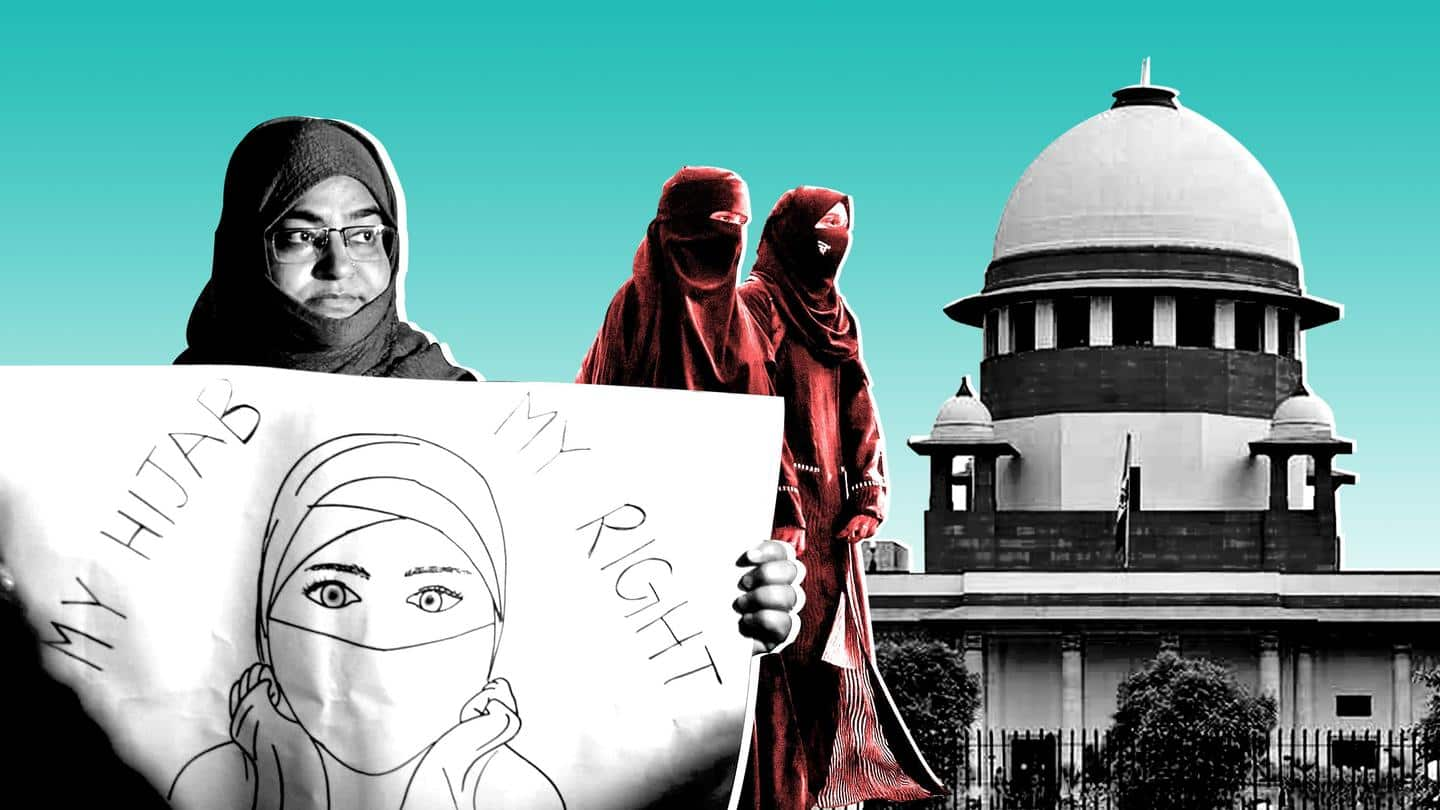
Hijab ban: SC delivers split verdict, refers to three-judge bench
What's the story
The Supreme Court on Thursday delivered a split verdict on the issue of hijab ban.
Justice Hemant Gupta dismissed the petitions against the hijab ban, while Justice Sudhanshu Dhulia allowed them. The matter will now be heard by a three-judge bench.
SC was hearing a batch of petitions challenging the Karnataka High Court judgment refusing to lift the ban on hijab in schools.
Context
Why does this story matter?
Earlier this year, the hijab row at Karnataka's educational institutions led to an intense national debate.
Some argue that the restriction aims at introducing a uniform dress code at educational institutions.
Those who opposed the ban said that the hijab is a fundamental religious practice and that Muslims were being singled out. The case was later heard by the Supreme Court.
Supreme Court
What exactly did SC judges say?
"It's ultimately a matter of choice and nothing else. Uppermost in my mind was the education of the girl child. I respectfully disagree with my brothers judge," said Justice Dhulia.
On the other hand, Justice Gupta stated that "there is a divergence of opinion" before asking the petitioners 11 questions and rejecting their case.
He declared that he approved the Karnataka HC order.
Details
SC had reserved judgment on September 22
Reports said that the bench had reserved its decision on September 22 on multiple petitions contesting the Karnataka HC's order.
"Now it's time for us to do our homework," SC had stated.
To recall, over 20 lawyers, including renowned counsel Kapil Sibal, Salman Khurshid, and Sanjay Hegde, pleaded on behalf of the petitioners, largely young girls arguing for the right to wear headscarves in school.
Response
'Essential religious practice' argument over hijab
"For those who are believers, it (hijab) is essential. For those who are not believers, it's not essential," senior advocate Dushyant Dave said on the matter of hijab being an essential religious practice.
Lawyers for the petitioners were responding to the government's arguments made by Solicitor General Tushar Mehta.
Additionally, they claimed that the instruction fits with a pattern of marginalizing minorities.
Official
'Government's 'irrelevant' link of hijab row to PFI'
Dave further chastised the government for bringing up the "irrelevant" question of the role of the Popular Front of India (PFI), a hardliner Muslim organization, and rejected "conspiracies" behind street protests.
Last month, SG Mehta said that the PFI initiated a social media push encouraging students to wear the hijab.
"This is not a spontaneous act of few individual children," he said.
Background
What is the hijab controversy?
On December 28, 2021, six girl students of the government-run PU College in Udupi, Karnataka, were reportedly denied admission to classes because they were wearing a hijab.
They protested and later filed a petition before the HC. The hijab dispute soon spread to other places in Karnataka, too.
The matter was then referred to a three-judge bench of the high court in February.
Karnataka
Here's more on the HC order
On March 15, Karnataka HC upheld an order by the state government that effectively empowered government colleges to ban hijab on campus.
The HC said that hijab is not a part of Islam's essential religious practices and that requiring students to be in uniform is reasonable.
The petitioners argued in the SC that this fails to ensure Articles 19 and 21 of the appellants.